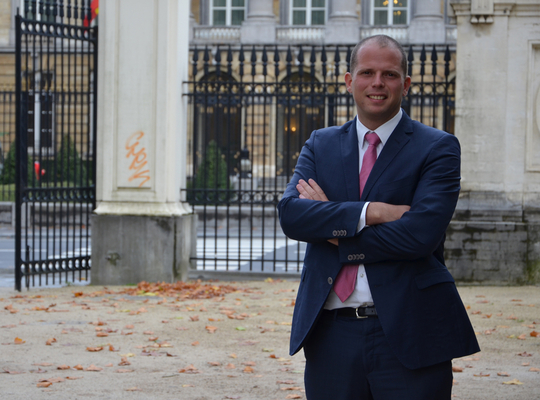You are here
120 administrative simplification measures

Tasked with Administrative Simplification, State Secretary Theo Francken is looking to simplify the life of small and medium-sized enterprises. Together with Minister for the Middle Class, Self-employed and SMEs, Willy Borsus (MR), he has proposed an ambitious, far-reaching plan intended to reduce the administrative red tape for SMEs. “To implement this plan, we have listened to the sectors and tried to answer their needs as best as we can,” says Theo Francken.
In addition to offering a state of affairs of the approximately seventy measures that have already been taken in the last two years, the plan contains some 50 new measures all aimed at achieving the same goal: helping our SMEs to concentrate on their core tasks and liberating them from unnecessary or excessive administrative steps. “It contains not only general measures relating to all companies, but also more sectoral measures,” Theo Francken emphasises. As a result, the plan has also been drawn up on the basis of consultations with 15 professional and interprofessional organisations and will form the object of a six-monthly monitoring exercise supervised by the Administrative Simplification Service.
The following simplification measures are of capital importance to the State Secretary. They have come into being thanks to a close cooperation with Minister of the Civil Service Steven Vandeput and Minister of Finance Johan Van Overtveldt.
Digital platform for public procurement applications
By the end of this legislature, a platform will be launched aimed at facilitating the SME application process for public contracts, reducing the hassle of too much administrative red tape. All public contracts will be consolidated on this platform. With the click of a mouse, SMEs will be able to register for these contracts, send quotes, submit applications, and so on. “In the first phase, the platform is being limited to certain sectors, such as ICT, consultancy and training, and to contracts with an estimated value of less than EUR 135,000,” Theo Francken explains.
Simpler and wider access to land registry in future
At the request of the sector itself, the FPS Finance is going to facilitate access to land registry data for everyone involved, including notaries and real estate agents. The FPS Finance also remains open to other relevant and sufficiently accurate requests. For example, architect access is being further investigated. The intent is to give users digital access to the land registry via a login, instead of them having to request cadastral data in writing or in person as was previously the case. “This means serious savings on time and paper for everyone,” Theo Francken concludes.

